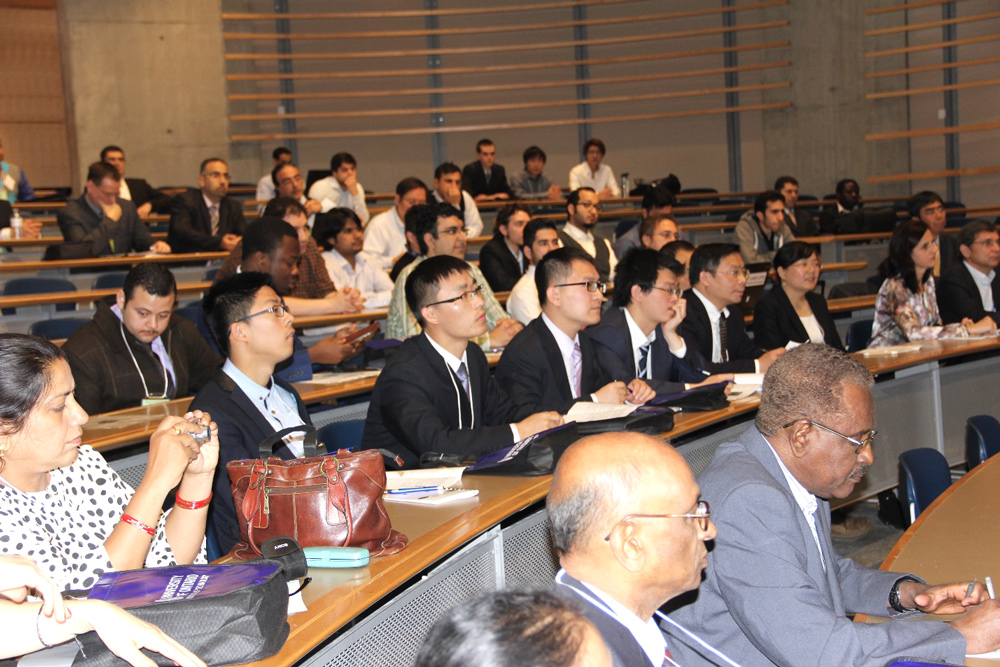Ontario Tech hosts hydrogen production experts from around the world
 Hydrogen is the most abundant element in the universe. Because of its capacity as a source of energy, science has long sought ways to develop effective ways of capturing and using hydrogen for a wide range of purposes.
Hydrogen is the most abundant element in the universe. Because of its capacity as a source of energy, science has long sought ways to develop effective ways of capturing and using hydrogen for a wide range of purposes.
Engineers have identified hydrogen as a vital renewable energy source of the future, particularly as a fuel for automobiles and boats. In spite of it being a molecular component of water, hydrogen has remained a rather elusive resource with a vast unrealized potential.
Leading hydrogen production experts from around the planet gathered at the Ontario Tech University (Ontario Tech ) In Oshawa, Ontario in early May to examine these questions at the 6th annual International Conference on Hydrogen Production (ICH2P).
“The applications of hydrogen are many and big money is at stake as we work toward the shared goal of a global hydrogen economy,” said Dr. Ibrahim Dincer, Conference Chair and Director of the Clean Energy Research Laboratory (CERL) at Ontario Tech . “The world is seeking clean, innovative and environmentally sustainable methods for hydrogen production. New technologies are exploring new thermochemical, photochemical and photoelectrochemical and biological processes. We are on the verge of a point where these ideas can be implemented and commercialized.”
Today, hydrogen is used primarily in on-site oil refining and in the production of ammonia and methanol. The annual value of current hydrogen production in the United States alone is estimated to be more than US$100 billion.
One of the major drawbacks in current production methods for hydrogen production is that fossil fuels are required, generally through steam reforming from hydrocarbons.
“And that’s the challenge: advancing hydrogen production methods that don’t release carbon,” said Dr. Dincer, a Professor with Ontario Tech 's Faculty of Engineering and Applied Science. “One very promising method involves the splitting of water into hydrogen gas and oxygen by introducing copper and chlorine (Cu-Cl) into a thermochemical and electrolysis cycle at high temperature. The net reaction decomposes water into hydrogen and oxygen while the other chemicals are recycled.”
Many countries around world are also examining how to link the Cu-Cl process with nuclear reactors and other heat sources including solar and industrial waste heat.
The copper-chlorine cycle is actively being researched at Ontario Tech ’s CERL.
“That’s what made the University of Ontario Institute of Technology an ideal site for the conference. CERL is demonstrating how to produce hydrogen in a clean way and at a lower cost than any other technology. We have major work to do in the years ahead on public education, but if do it right, there is every reason to believe that Durham Region will remain Ontario’s energy capital for decades.”
Visiting keynote presenters at ICH2P 2015:
- Dr. Ibrahim Khamis, International Atomic Energy Agency (Vienna, Austria)
- Dr. Serguei Lvov, Pennsylvania State University
- Dr. Greg Naterer, Memorial University of Newfoundland
- Dr. Christian Sattler German Aerospace Center Institute of Solar Research
- Dr. Levi Thompson, University of Michigan
